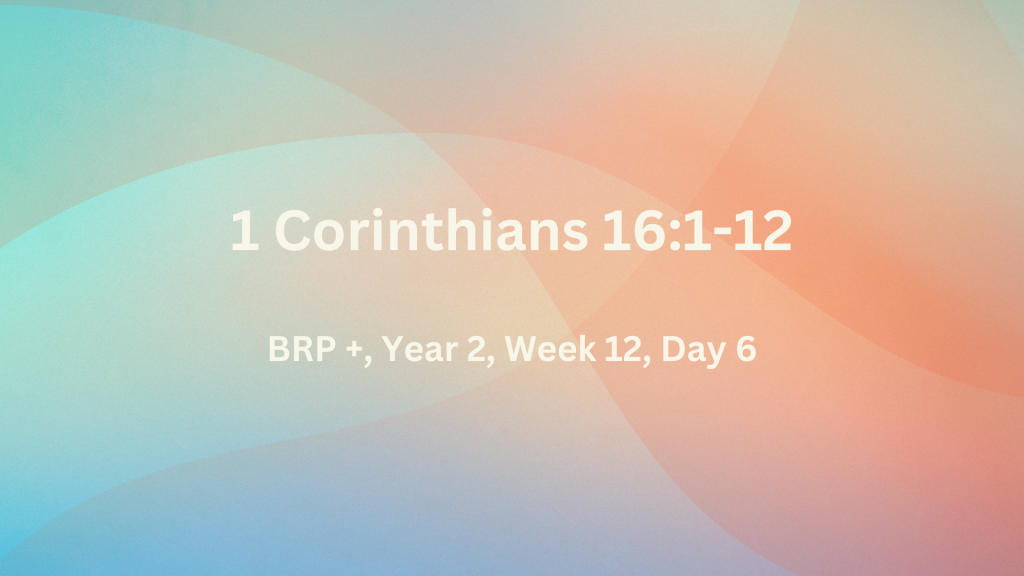1 Corinthians 16:1-12
Q.1. What practice was followed regarding giving in the churches? How can we ensure we give responsibly? Where was it to be given? Was it restricted to local use? – (1 Cor.16:1-3 c.f. 1 Cor.9:14)
Paul had already discussed the appropriateness of supporting those involved in preaching the gospel, though he generally supported himself by working as a tentmaker (see 1 Cor.9:8-14 c.f. 1 Thes.1:9; 2 Thes.3:7-9). Remunerating God’s servants applied especially to – those who work hard at preaching and teaching (1 Tim.5:17-18). Here Paul explained how such workers could be supported by the gifts of God’s people. He advocated the guidelines followed by all the churches that – On the first day of every week each one of you is to put aside and save, as he may prosper, so that no collections be made when I come (1 Cor.16:2). Giving was not to be spasmodic but regular and weekly, so the offerings could be set aside and stored to meet the demands of the ministry and mission of the local church (see Mal.3:10). Paul gave further insights about giving in his second letter (see 2 Cor.chpts.8-9). We know from the mouth of Jesus that it is not so much the amount of the gift. Rather giving is to be a willing expression of how God has prospered us (see 1 Cor.16:2 c.f. Lk.21:1-4; 2 Cor.9:6-8). The very fact that Paul spoke about collections for the Jerusalem church made it clear that gifts were shared with other churches (1 Cor.16:3 c.f. Acts 11:29-30; 3 Jn.1:5-8).
Q.2. How did Paul make his plans for ministry? Why was he staying on at Ephesus? How were they to treat Timothy? What message did he relay from Apollos? – (1 Cor.16:4-12)
Paul outlined his movements and expressed his wish to visit the Corinthians (see 1 Cor.16:5). Nevertheless, he firstly intended to stay in Ephesus until the feast of Pentecost because – a wide door for effective service has opened to me, and there are many adversaries (1 Cor.16:9). Paul found it hard to resist opportunities to share the gospel. However, he sometimes had to change his plans suddenly because of dangerous opposition. Beyond all that, Paul wisely only proceeded – if the Lord permits (1 Cor.16:7). He was aware of Timothy’s timidity, so tried to forestall any disrespect for the less dynamic servant of God. He asked – 10 if Timothy comes, see that he is with you without cause to be afraid, for he is doing the Lord’s work, as I also am. 11 So let no one despise him. But send him on his way in peace, so that he may come to me (1 Cor.16:10-11). By contrast, Apollos was his own man and, though Paul had encouraged him to visit the Corinthians, it was not according to his plans (see 1 Cor.16:12 c.f. Acts 18:24-28).

